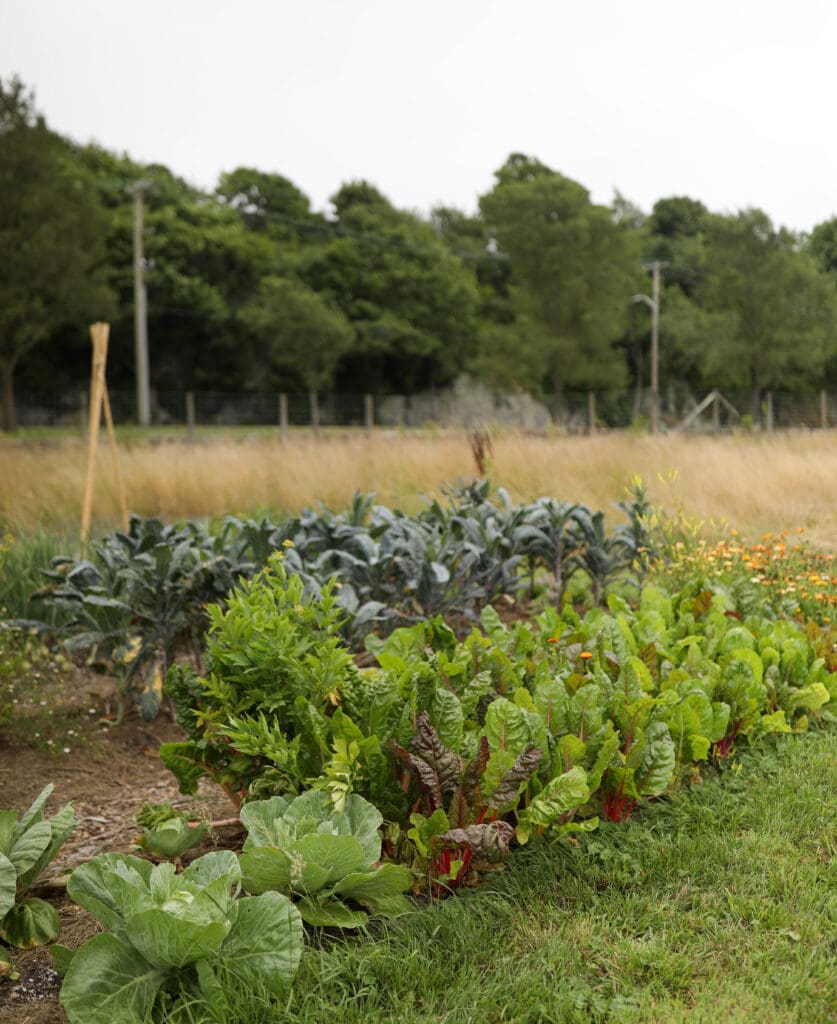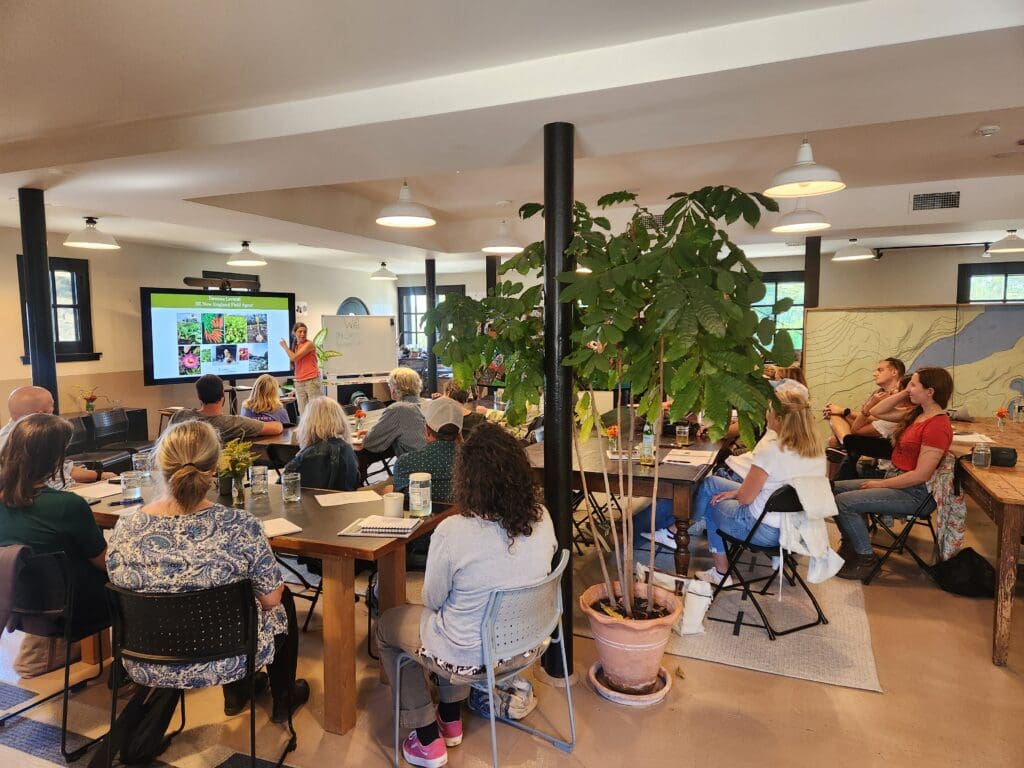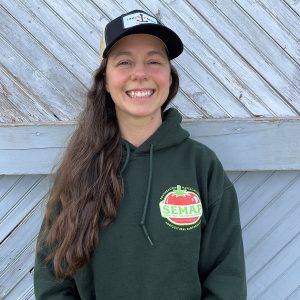Land access is a top barrier for farmers, particularly new and beginning farmers. New farmers struggle to gain secure and affordable access to the land they need to launch and maintain viable farms. Many new and beginning farmers lack a farming background and the connections that come with it. These young and increasingly diverse farmers depend on the availability of farmland to succeed. Farmland access is made more challenging with rising land prices, mounting development pressure, and spiking interest rates.
Leasing farmland is a common way to access land. With purchase prices out of reach, farmers seek land to rent or lease, from a small vegetable plot to livestock pastures or large crop fields. Nearly half of all US farmers lease either some or all of the land that they farm because leasing allows farmers to get onto farmland without the enormous capital investment required to purchase land.

In Rhode Island, for example, access to farmland is especially difficult, as it has the most expensive farmland in the country. Rhode Island continues to lose farmland at an alarming rate. More than 80% of the agricultural land in the Ocean State has disappeared. Since 1940 farmland has decreased from approximately 300,000 acres in agricultural production to merely 67,800 acres, with less than 40,000 actively used for agriculture today, according to the Rhode Island Land Trust Council. This trend threatens our local food security, local economies, climate resiliency, and the rural character of our communities.
As a landowner, when you make land available for farming you help secure a future for farming in your community. If you own, manage, or have inherited farmland, you can make a portion–or all–of it available for active agricultural use. Making land available for farming can bring many rewards, and it secures a sustainable, productive use of your land.
As much as 90% of the landowners who lease out active farmland in New England are non-farmers. Non-farming landowners play a crucial role in supporting secure land tenure and food security in this region.
This summer, Land For Good dug into the topic of land access with several partners in Newport, Rhode Island. We don’t hold many events during the busy season, but this gathering – organized with our partners at Ocean Hour Farm and Aquidneck Land Trust – brought landowners together to explore how they can support active agriculture.
We kicked off the event with an inspirational introduction to regenerative agriculture by Beth Alaimo, Education Program Manager at Ocean Hour Farm, who highlighted the positive impact agricultural land use can have on the environment. Alex Chuman, Executive Director of Aquidneck Island Land Trust, spoke about the current state of agriculture on the Island, citing the rapid rate of farmland loss and the highest price in the country per acre of farmland. These two factors threaten the ongoing presence of local farming and pose barriers for entering and next-generation farmers to carry on our regional agricultural heritage. Michelle Sheehan, from Rhode Island Department of Environmental Management (RI DEM) shared information about the State’s land protection programs and current-use tax program, connecting landowners with these resources which might support prolonged agricultural activity on the land. As Land For Good’s Southeastern New England Field Agent, I then presented an overview of farmland leasing, and how farmers, landowners, and the land can benefit from good farm leases.
I also offered a pop-quiz on farmland facts! Our attendees nearly aced the quiz. It was surprising to see how many people knew the percentage of food consumed in New England that is produced within the region (read to the end to find out!) and other surprising facts, like:
- The average age of a farmer in the US is around 60 years old.
- How much land had been farmed historically in Rhode Island, around 530,000 acres in 1850
- How much land is being farmed today, about 50,000 acres.
- Rhode Island stands to lose about 8,100 acres by the year 2040 if farmland loss continues at the same rate it does today.
We shared these numbers in an effort to illustrate to landowners that their land holds value beyond the real estate market. Farmland contributes value to our communities in the way of environmental services like improving water quality, biodiversity, and soil health; agricultural production of foods, fiber, flowers and beyond; and human benefits of livelihood, job opportunities, and community connection.
A panel of landowners and farmers shared their experiences with leasing farmland in Rhode Island:
- Deborah Jud and Hank Keating are landowners who have created a micro farming opportunity on their property that includes both infrastructure, housing, and about an acre of good crop land.
- Mike and Polly Hutchison are farmers who both own and lease land for their cut flower operation known as Robin Hollow Farm, a stellar operation which they have built up over the course of nearly 20 years.
- Farmer-attendees shared their experiences as well. At the end of the event folks were also able to connect beyond the presentation.
We also paused to honor the human communities and the people who have stewarded the lands where we then stood, and to acknowledge the deeply relational interactions that shaped the environment for thousands of years before European colonists set foot on these soils. We stood discussing land tenure and property in a place where ownership of property was imposed upon sovereign peoples whose land-use practices spanned generations of shared but organized tenure. The event felt far more than just an informational conversation about leasing land for farming.
And in case you didn’t know, the amount of food consumed in New England which is produced within the region, is about 5%, which means that more than ever, we need to keep farmers on the land and keep that land under active agriculture to ensure and increase food security for all.
Resources
- Explore our full list of free resources for Leasing Farmland
- Get started with A Landowner’s Guide to Leasing Land for Farming







